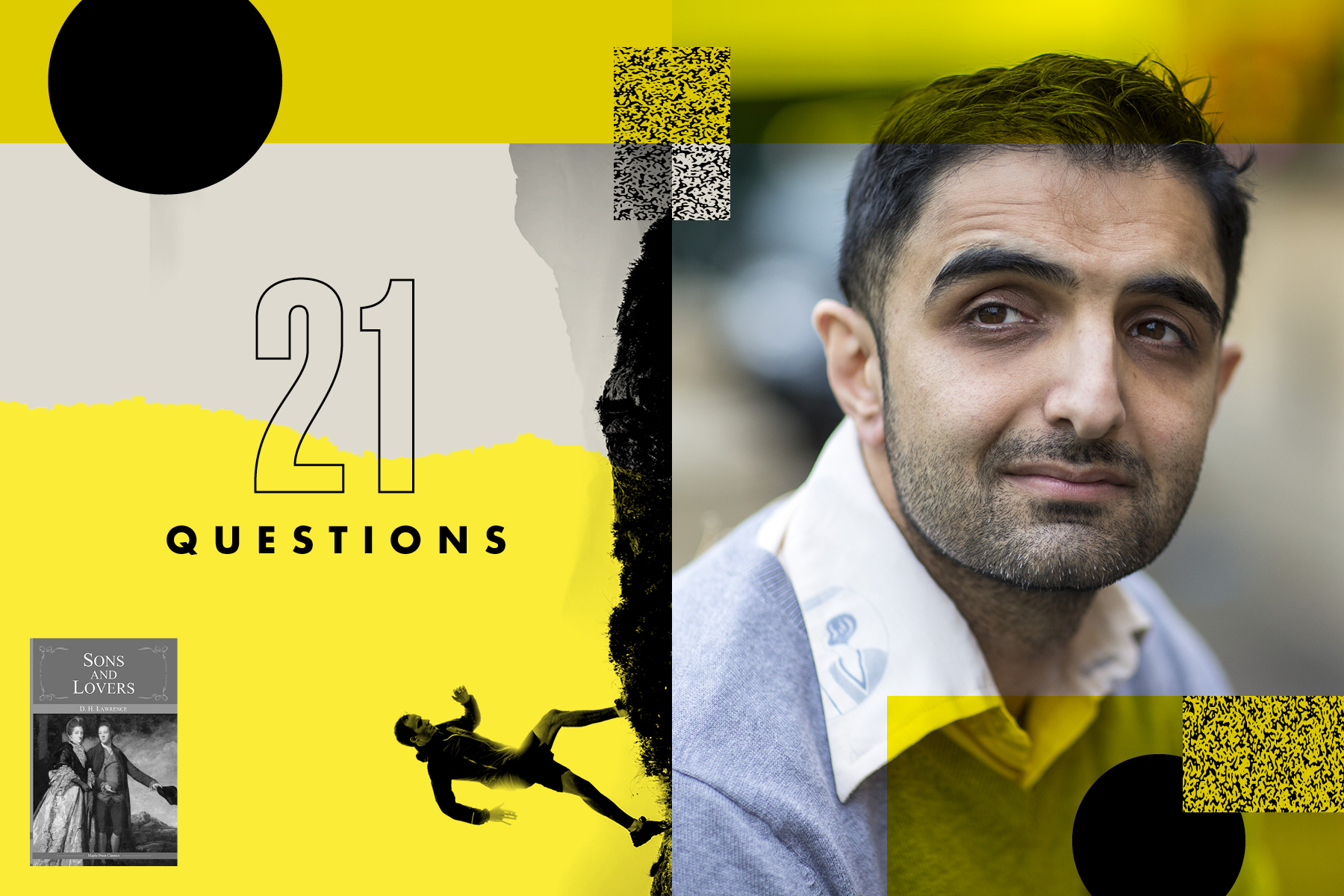
- Home |
- Search Results |
- ‘My biggest fear? Not paying enough attention to people I love’: 21 Questions with Sunjeev Sahota
‘My biggest fear? Not paying enough attention to people I love’: 21 Questions with Sunjeev Sahota
The Booker Prize-nominated author of China Room on his passion for running, the power of J.M. Coetzee, and wishing he was funny.
Here’s a fun fact you may not have known about Sunjeev Sahota, the author of the Booker Prize-shortlisted 2015 novel The Year of the Runaways and incredible new novel China Room: Sunjeev hadn’t read a novel until he was 18. Of course, he’d studied English – plenty of drama and poetry, as well as other prose – but never novels themselves.
He spent the next two decades making up for it, immersing himself fully into the world of fiction and reading voraciously until he was inspired to write his first novel, 2011’s Ours Are the Streets – then his second and, now, his third. China Room is the gorgeous, tenderly told of Mehar, one of three young sisters married to three brothers in 1929 Punjab, all of whom are kept separate from their husbands, working in the family’s ‘china room’. Meanwhile, in 1999, a young man flees England to visit the home, but the room is barred. How Sunjeev connects the two – and in the process confronts issues of race, addiction, family and betrayal – is deft and gripping.
We reached out to Sunjeev to ask the renowned author our 21 Questions about life and literature; here, he discusses the sadness of Thomas Pynchon, the complicated life of an author, and his passion for running.
Which writer do you most admire and why?
J.M. Coetzee, for the strength of his prose and the power of his gaze. And his wintry humour.
What was the first book you remember loving as a child?
I recall being transfixed by words and the order they were put in, the use they were put to, but I don’t recall loving or being much aware of books as a child. I wasn’t bookish.
What was your favourite book when you were a teenager?
Aged 19, I read Rohinton Mistry’s A Fine Balance and felt devastated by it. I was reeling. I’d never before been made to feel like that, in that way.
Tell us about a book that changed your life’s path
'I don’t recall loving or being much aware of books as a child; I wasn’t bookish'
Sons and Lovers is by a collier’s son and said much about the kind of men I grew up around in my northern mining town. It was the first book to make clear to me that meaning can be produced in the act of reading novels; that, in fact, reading novels is a perfectly valid away of spending a life.
What’s the strangest job you’ve had outside being an author?
Not especially strange, but when I was 16 I had a summer job working 6 a.m. to 2 p.m. in a big, steaming laundry, mostly washing awful hotel linen. I remember the heat, the tall gold cages on wheels and the dirty satin pink tablecloths spilling out of them.
What’s the best piece of writing advice you’ve ever been given?
Said to me by a dear friend: “But I’ve always considered restraint a positive quality.”
Tell us about a book you’ve reread many times (and why)
Thomas Pynchon’s The Crying of Lot 49: I teach it, which necessitates a certain amount of re-reading every year. It seems to get sadder each time I finish it.
What’s the one book you feel guiltiest for not reading?
If I didn’t become an author, I would be ______
Happier and sadder both.
What makes you happiest?
Aside from my family? Running in the Peaks.
What’s your most surprising passion or hobby?
I love running and try to take it seriously.
What is your ideal writing scenario?
An empty day, crisp sunshine, complete silence.
What was your strangest or most embarrassing author encounter?
At a festival in America, a (white) woman asked me to sign a copy of my novel; except it was a novel by another Indian-origin writer. I handed the novel back, pointing out the error. I wasn’t offended – mistakes like these are corrigible and certainly forgivable – but she was mortified and the more she reddened and apologised – “Please forgive me”, she said – the more it began to sound like she was apologising for something much larger than her simple ignorance.
Was she apologising for being white? As we parted, I had the strange feeling of occupying – against my will, and no doubt hers – the position of a victim.
If you could have any writer, living or dead, over for dinner, who would it be, and what would you serve them?
'I sometimes wish I was funny'
Leonora Carrington, because I love her work, and speaking to her about art and writing would be an edifying experience. She was a vegetarian, so maybe I’d make a tofu and pea curry, a current favourite of mine.
What’s your biggest fear?
Not paying enough attention to those I love.
If you could have a superpower, what would it be?
Being funny is a superpower. I sometimes wish I was that.
What’s the best book you’ve read in the past 12 months?
Summerwater by Sarah Moss is wonderful.
Reading in the bath: yes or no?
No.
Which do you prefer: coffee or tea?
Tea.
What is the best book you’ve ever read?
Not sure about notions of best ever, but I’ve read the ‘The Lives of Animals’ chapters/lectures in Elizabeth Costello a few times now, so I must rate that book very highly.
What inspired you to write your book?
A family legend, the notion of a doppelganger, an old room.
China Room by Sunjeev Sahota is out now.